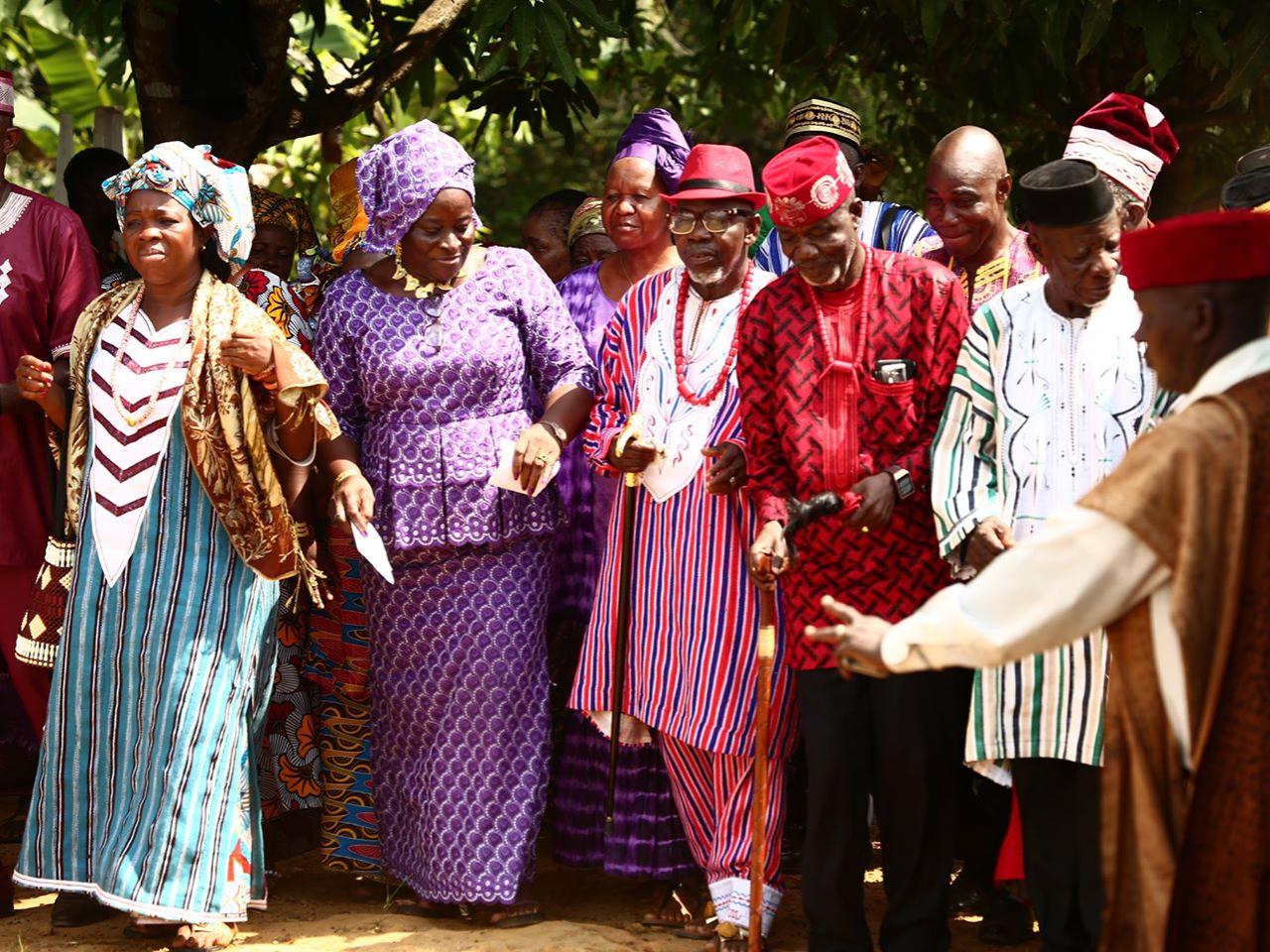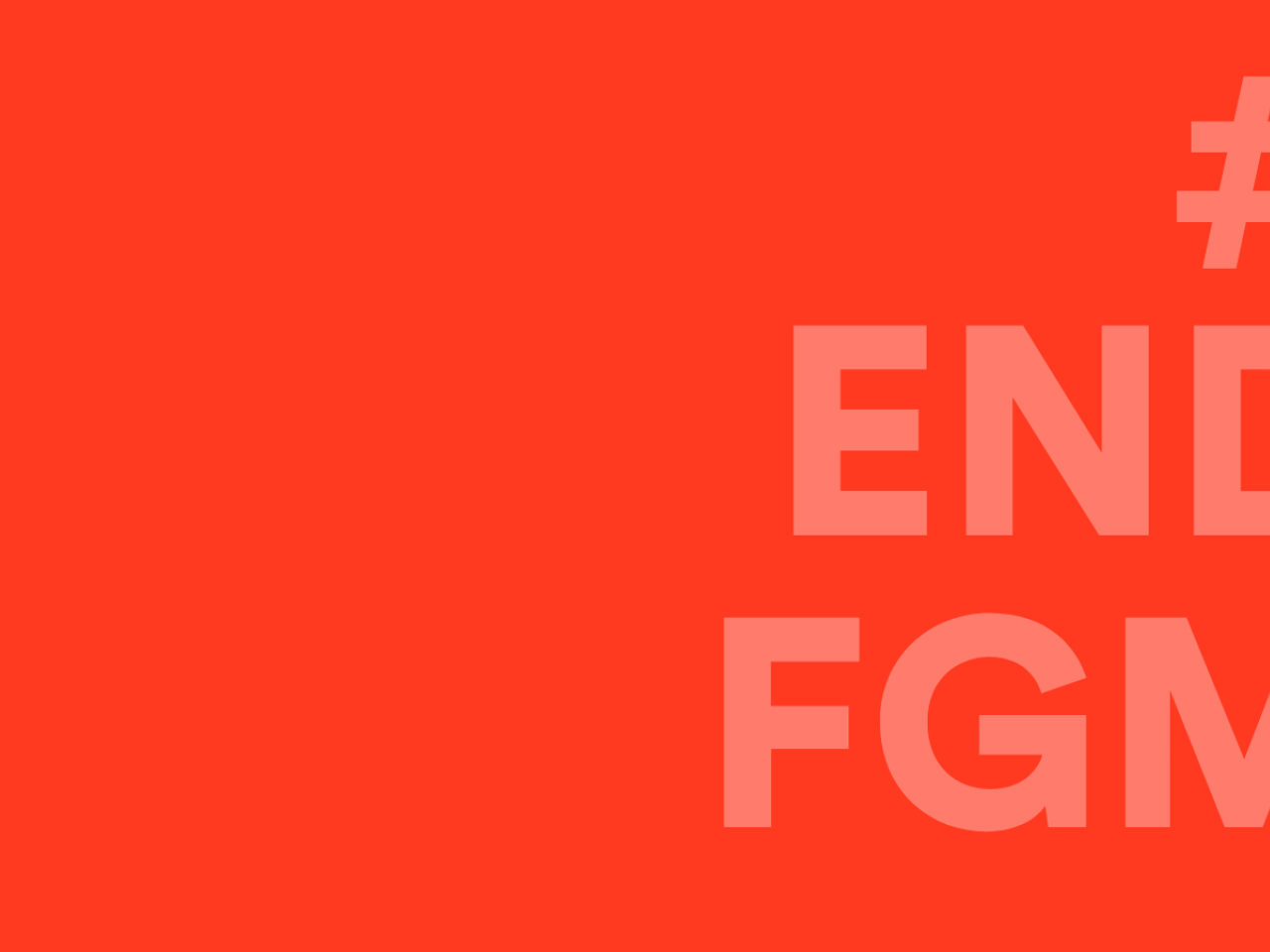FGM practitioners in Liberia embrace agriculture as alternative source of income to FGM
SONKAY TOWN, TODEE DISTRICT, Liberia - “Until 2019, no one could speak about the practice of FGM or make mention of it in public,” says Mr. Dhogba Mabande, Programme Analyst from the Spotlight Initiative in Liberia.
In 2019, at the request of the National Council of Elders and Traditional Leaders, the European Union (EU) and the United Nations (UN), under the Spotlight Initiative, agreed to provide alternative livelihood opportunities for traditional practitioners of FGM in the five Spotlight Initiative pilot counties of Grand Cape Mount, Montserrado, Lofa and Nimba. The project, implemented by UN Women through Plan International and grassroots women organizations, would also see the construction of four vocational and heritage centres. These counties were chosen due to their high prevalence of FGM.
CHANGING ATTITUDES TO CHANGE THE FUTURE
Two and a half years later, the Alternative Economic Livelihoods Project for traditional practitioners of female genital mutilation (FGM) in Liberia is yielding fruits.
“300 traditional FGM practitioners have benefitted from the alternative livelihood program in the five Spotlight counties and two of the four vocational and heritage centres are complete. The rest will be ready before the end of the year [2022],” Dhogba Mabande told a delegation from the EU and UN who visited one of the project sites in Sonkay Town, Todee district.
The centres will preserve and promote beneficial cultures customs and traditions, while acting as resource centres and training facilities for the Zoes and girls in the communities to gain business skills. The centres are built on pieces of land donated by community elders that previously sheltered the bush schools where FGM was practised, among other traditional practices.
Above: UN Resident Coordinator in Liberia Mr. Niels Scott discusses the Alernative Livelihood Programme.
National surveys and stakeholder reports notice a general decrease in sexual and gender-based violence and FGM practice in the five Spotlight Initiative counties.
The remote and forested village of Sonkay has one of the vocational centres and is implementing the alternative economic livelihoods project. “The project has transformed the lives of our traditional women who have committed to the abandonment of FGM,” said Margaret, Chairperson of We4She, a community-based women’s organization helping to implement the project.
Madam Massa Kandakai leads the Zoes in Sonkay and proudly testified that she, along with 32 women (Zoes) who practised FGM, are “now focusing on their agriculture and business activities supported by EU and UN.” She has practised FGM for most of her life but now advocates for girls to get an education unhindered and make their own choice of whether to undergo the initiation after they are 18 years old.
ON THE RIGHT TRACK
Today, eliminating FGM is boldly on the political, social and economic agenda of the country. So far, Liberian governments have suspended the practice three times – 2018, 2019 and 2022. To achieve the last two suspensions, Spotlight Initiative worked with the various stakeholders on policy frameworks. These frameworks have paved the way for the success of activities with traditional practitioners and local communities.
“What we’ve heard and what we’ve seen in Sonkay is impressive in trying to eliminate FGM. And to do that we’ve got to also encourage economic development, they go together. We’ve seen a very firm commitment by the elders, by the mothers, by the people of Sonkay town, to eradicate this precarious activity. We’ve got that commitment. I don’t think we have achieved 100 per cent success straight away but we are certainly on the way to doing that,” said UN Resident Coordinator in Liberia Mr. Niels Scott.
By Helen Mayelle


